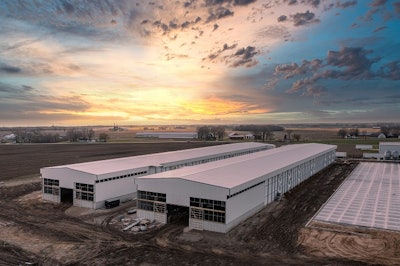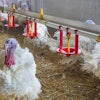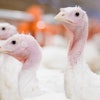
In November 2019, Michigan signed legislation, Senate Bill 174, into law that requires that all eggs produced or sold in Michigan be produced in cage-free houses by January 1, 2025. This updated legislation passed in 2009 which required egg producers in the state to replace battery cages with larger ones by 2020.
California’s Prop 12 law enforced all eggs produced and sold in the state to be cage-free by 2022. While California imports most their eggs, Michigan produces more eggs than are consumed in the state. This means that if a Michigan egg producer wants to be in business in 2025, they will likely need to find a market for cage-free eggs outside of the state.
Senate Bill 174 has forced Michigan egg producers to decide: convert to cage-free production or go out of business.
Hamilton Eggs Holding LLC
Hamilton Eggs LLC, located in Hamilton, Michigan, is owned by DeWeerdt Poultry Farm and Zoet Poultry Farm. The company markets the two farms’ eggs, which are converting to cage-free.
“Michigan right now is an export state and has been for a long time. Right now, our eggs go all over the country, but about five years ago, at least half of our eggs stayed in the state, and about 20 years ago, 75% of our eggs stayed in the state.” explained Steve DeWeerdt, owner of DeWeerdt Poultry Farm.

According to DeWeerdt, seeing the cage-free egg purchase pledges from egg buyers representing over 60% of U.S. production going into effect within five years was a significant driving point for the farm to convert to cage-free. “We have no other option, because within four years, this farm is obsolete if we don’t convert,” he stated. The farm’s Michigan location means it’s on a time clock to convert their entire facility to cage-free before 2025. These conversions are happening all over the country; however, independent smaller-sized producers are often affected most significantly.
After crunching the numbers, the company realized it was going to be expensive to stay in the egg business. Despite the legislative requirements, farms are not receiving financial assistance to convert to cage-free systems. In order to ensure financial viability and sustainability, Hamilton Eggs had to make a commitment with a buyer needing cage-free eggs. “Speculation doesn’t look good from the lender’s perspective,” DeWeerdt added.
Construction
Construction is finished on the first cage-free facility that began last year, another is close to completion and a third will begin construction soon. Two barns were torn down in the process. These wood-framed, belt-battery houses are being replaced with steel framed houses with aviaries.
The two newest barns on the property, which currently have enrichable cages in them, will eventually be converted to cage-free. These barns are wood-framed, but the buildings are in very good shape because they are under 10 years old, so they will be remodeled for cage-free rather than torn down.
If the company hadn’t had to convert to cage-free, Deweerdt guessed they could have used that equipment for up to 15 years in their newest caged barn. “It was tough to tear (the older ones) down,” he added.
“In the past, we’ve never had to build so much in such a short period of time,” stated DeWeerdt. “We have three years and two months.”
The question
Because Michigan is being forced to move to cage-free, the choices were clear for the company: convert, sell, or leave the industry.
However, the question remains for other companies in the same situation. Will everyone in Michigan convert, or will some quit producing eggs all together? All egg producers in the state are being forced to make the same decisions, leaving everyone on a level playing field.
The trouble for Michigan producers is getting to the new cage-free playing field, especially with the unknown regarding what will happen in retail stores in states that don’t have laws mandating cage-free eggs. The industry still doesn’t know if consumers will pay the higher price for a cage-free product unless they are marketed more competitively with conventional eggs.


















